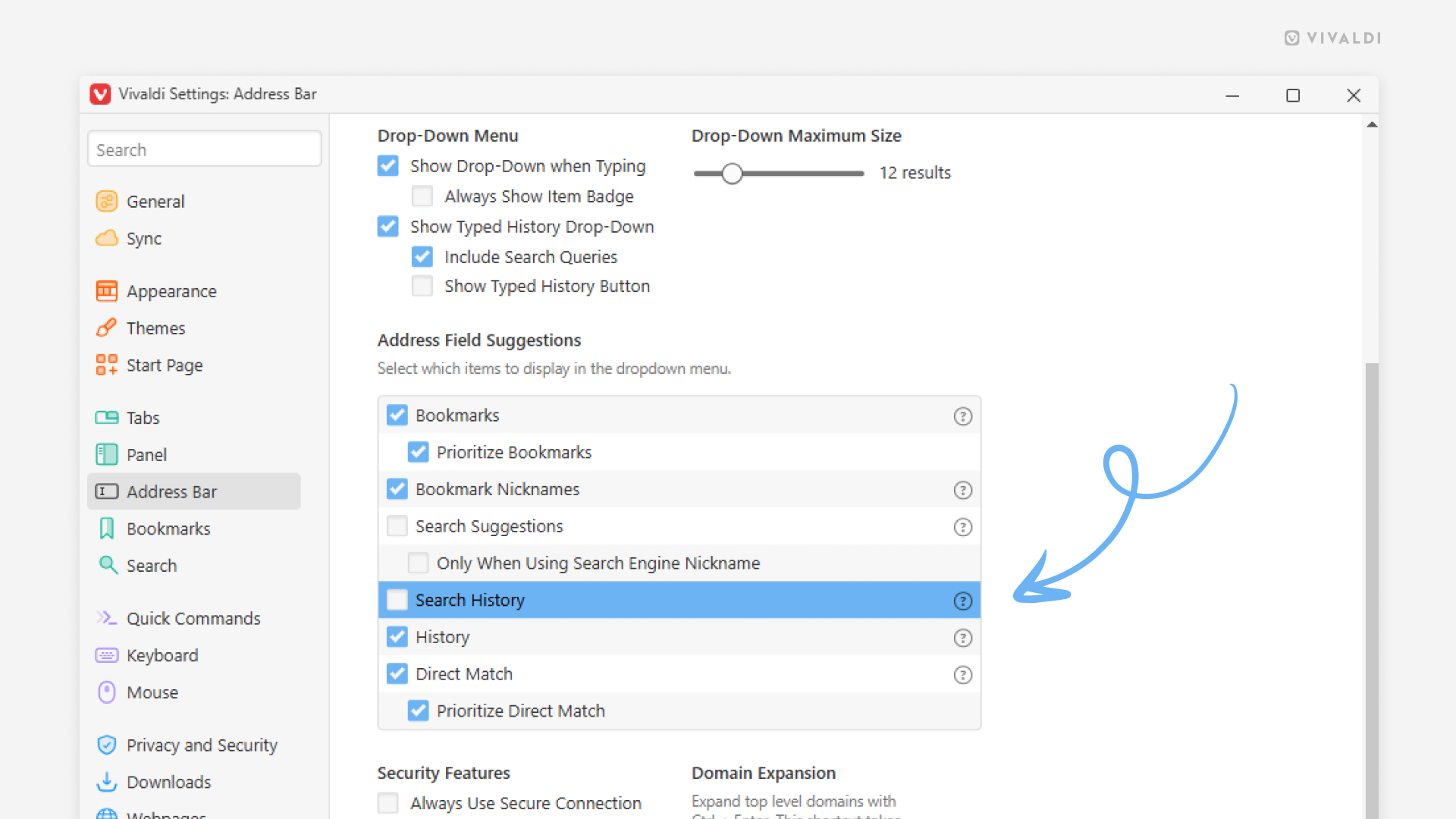Desktop Tips
Tip #733
June 30, 2025
Choose your preferred menu for filtering irrelevant messages from view in Vivaldi Mail.
Managing your messages is easier, when you can filter unnecessary emails out of view. It’s up to you to decide, whether you prefer to have the filtering options accessible from a drop-down menu, with each option’s name spelled out, or have them at easy reach above the list of messages as icons.
To pick your preferred filter menu display:
- Go to Settings > Mail > Message View Settings > Filter View Buttons.
- Choose between “Text Menu” and “Icons Only”.
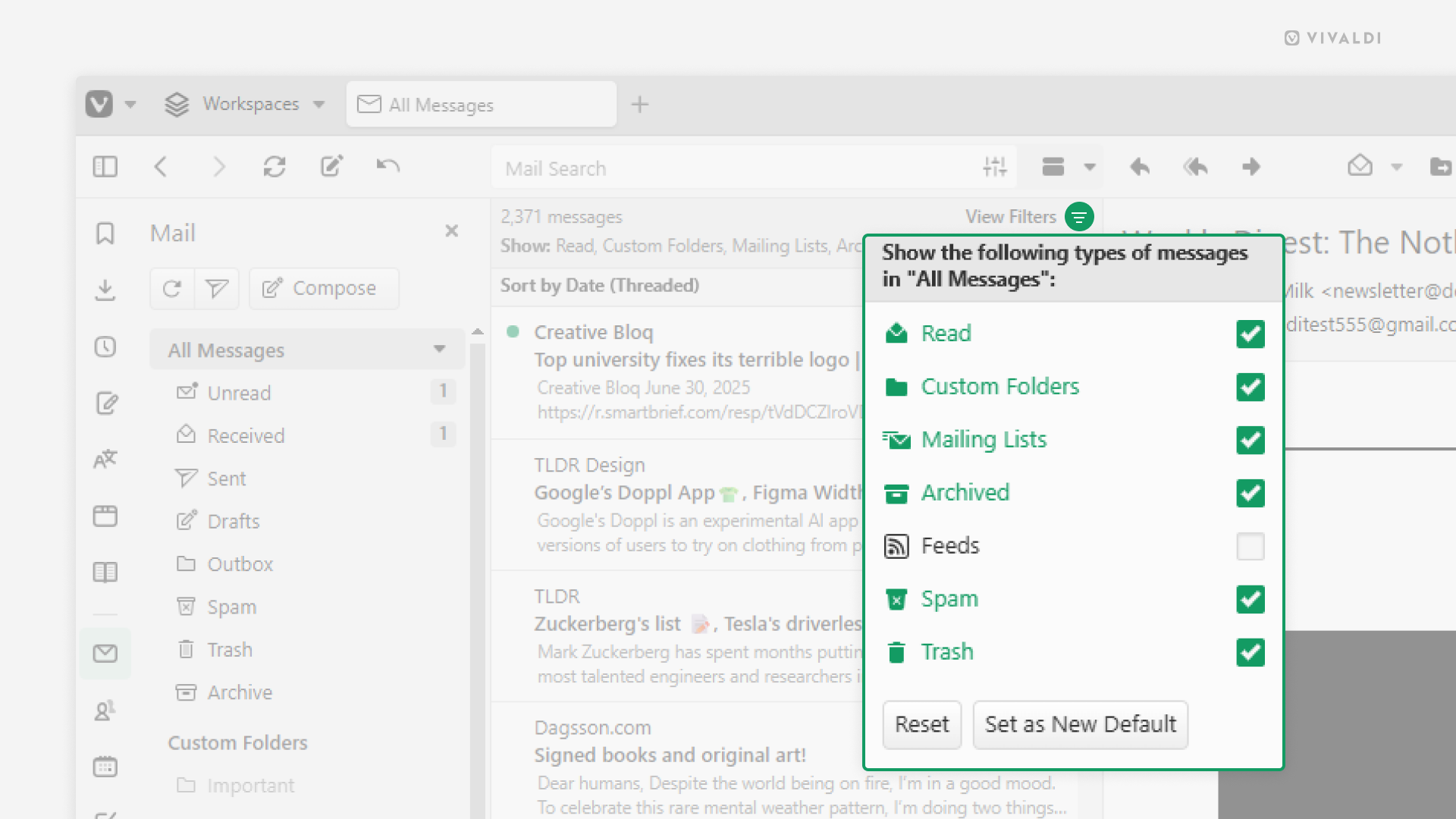
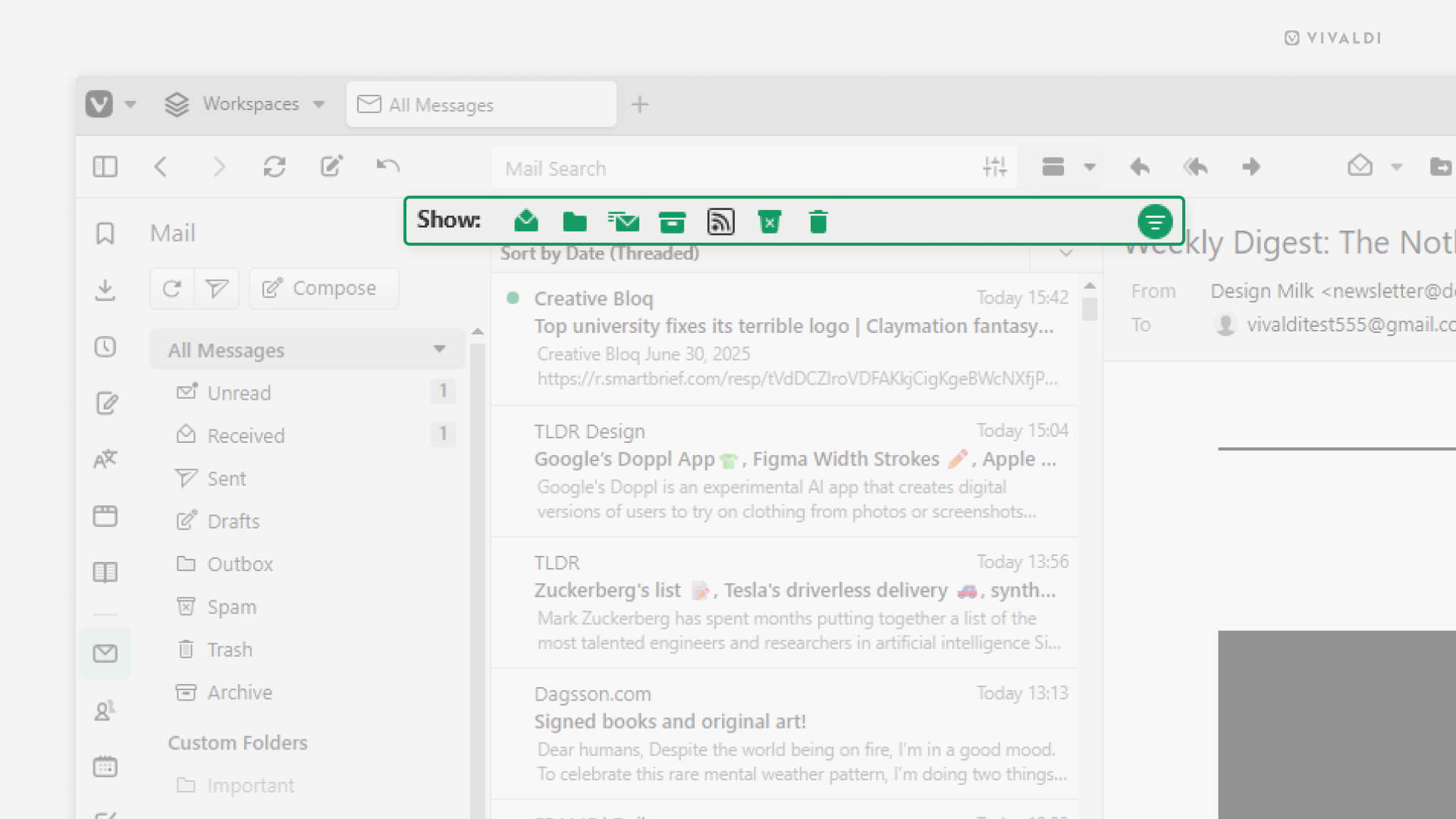
Tip #732
June 27, 2025
Display the full date and time on the Status Bar.
The clock on Vivaldi’s Status Bar lets you take a quick glance at the time while you’re browsing as well as set alarms and timers for yourself. By default, only the hours and minutes are displayed, but you can add the current date and seconds to it as well.
To display the full date and time:
- Right-click on the clock.
- Select “Show date” and “Show Seconds” from the menu.
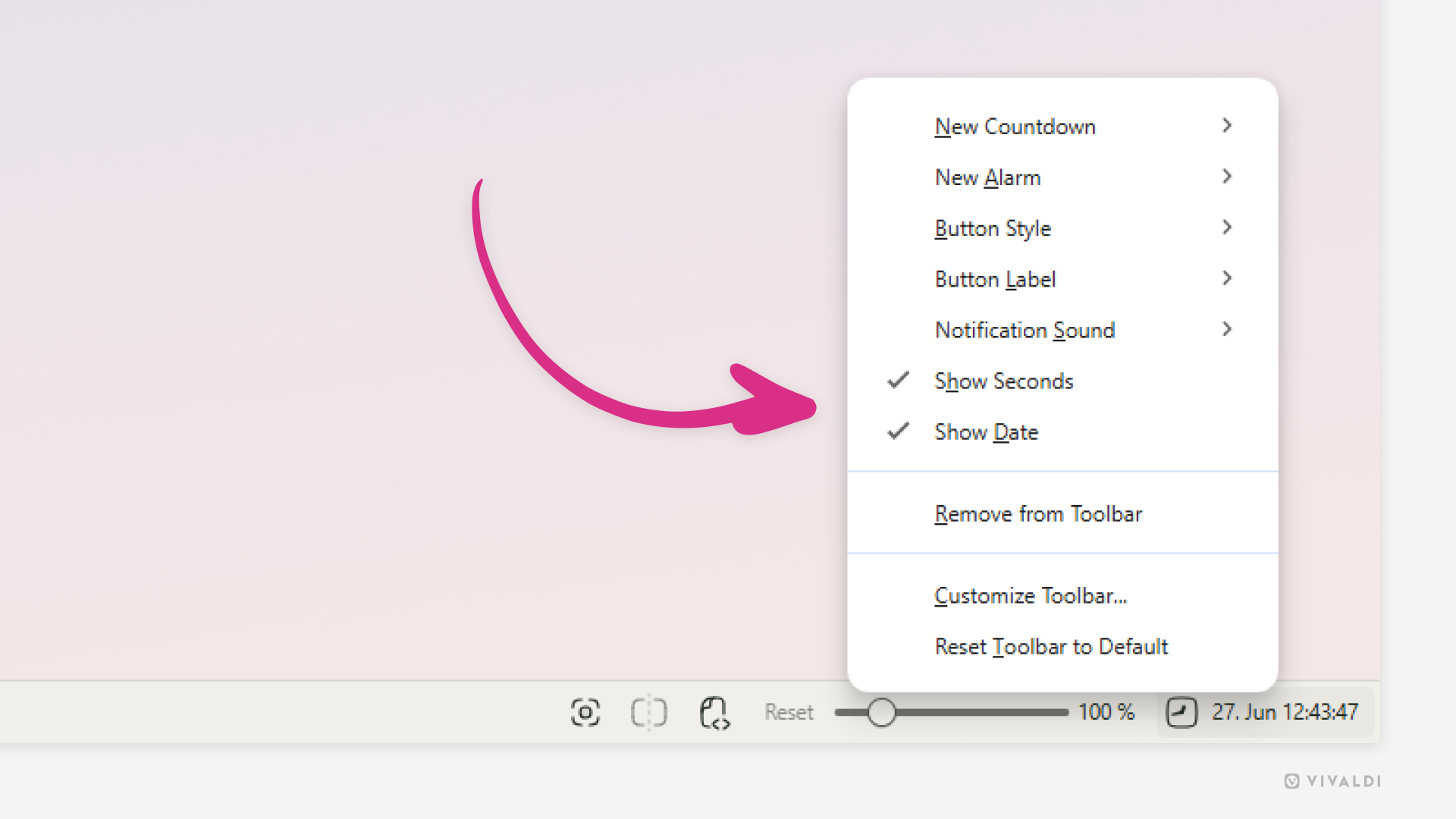
Tip #727
June 18, 2025
Combine Compact and Two-Level Tab Stacks.
Do you like the ease of use of Two-Level Tab Stacks, but prefer the display style of the Compact stacks on the main Tab Bar? In Vivaldi, you can have the best of both worlds. If your clicks are precise you can even go straight to a specific tab in the stack without focusing on the grouped tabs first. Just click on the little lines above the stack.
To enable the Compact style:
- Go to Settings > Tabs > Tab Features > Tab Stacking.
- Select Two-Level Tab Stacks.
- Enable “Use Compact Display Style”.
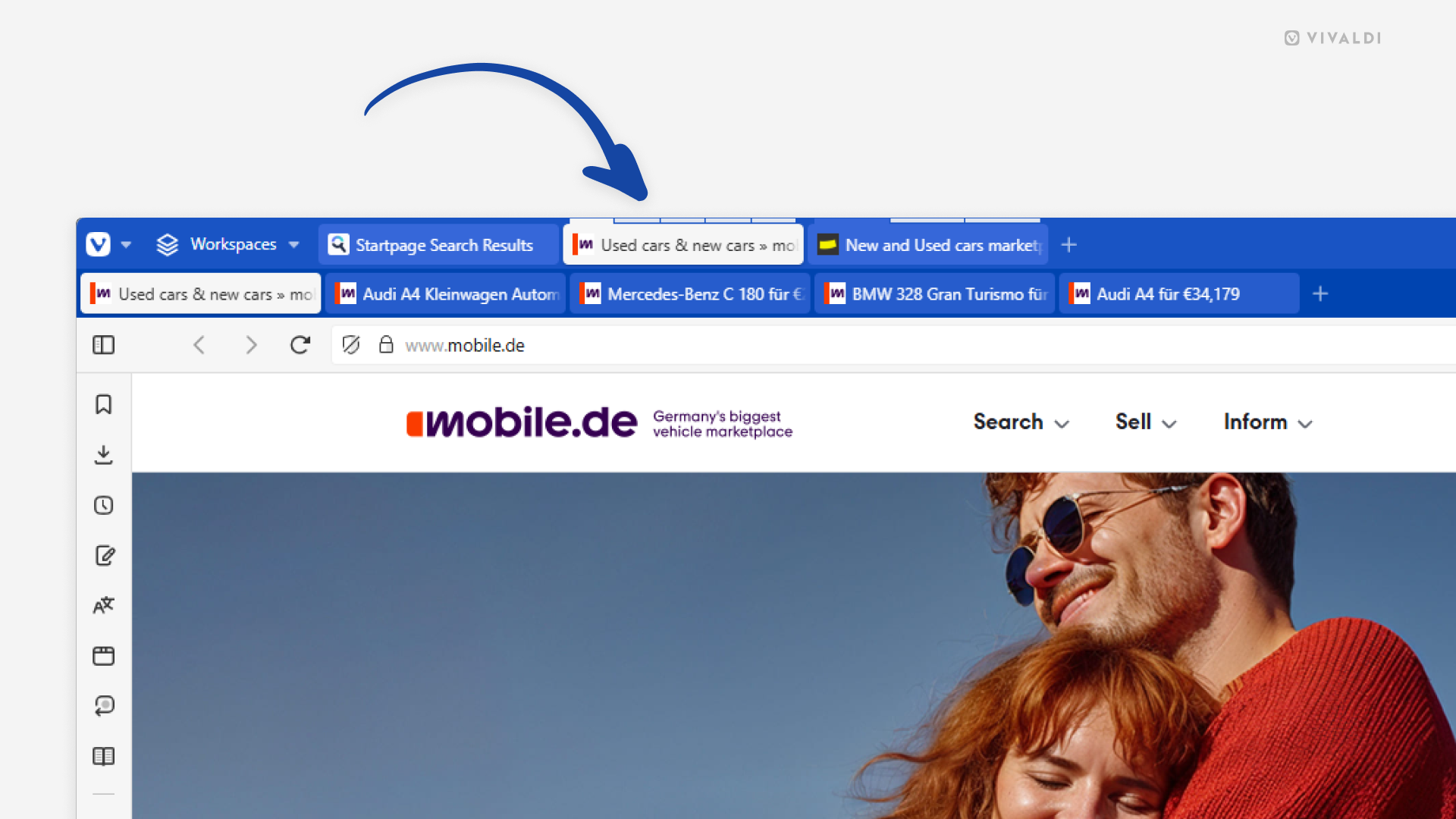
Tip #726
June 17, 2025
Click on the event title on the reminder to open the Calendar.
With Vivaldi Calendar‘s reminder notifications, you’ll never miss an important event or task. When you receive the notification, simply click on the event title and you’ll be taken to the Calendar, where you can view and edit the event’s details, and in case of a task mark it as done.
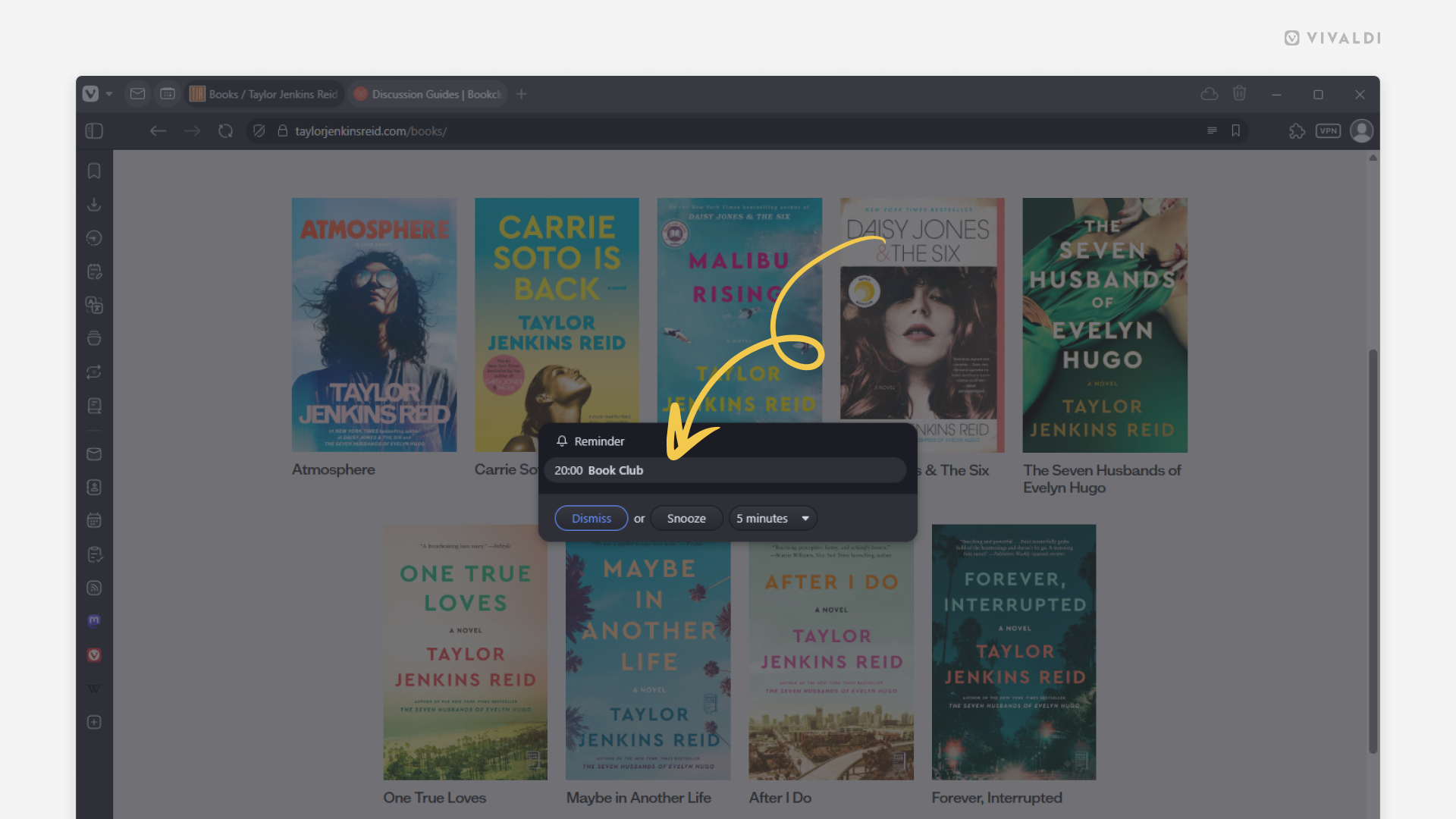
Tip #725
June 16, 2025
Create backups of Workspaces by saving them as Sessions.
Working on a crucial project requires taking all the precautions. One way you can do it in Vivaldi is by saving the tabs you have open in the project’s Workspace as a Saved Session. This allows you to open that exact set of tabs any time in the future, even when you’ve closed the tabs or, knock on wood, lost them for some reason.
To save Workspace tabs as a new session:
- Select all the tabs in the Workspace either on the Tab Bar or in the Windows Panel.
- Right-click on one of the selected tabs.
- Select “Save as Session”.
- Give the session a name.
- Click “Save”.
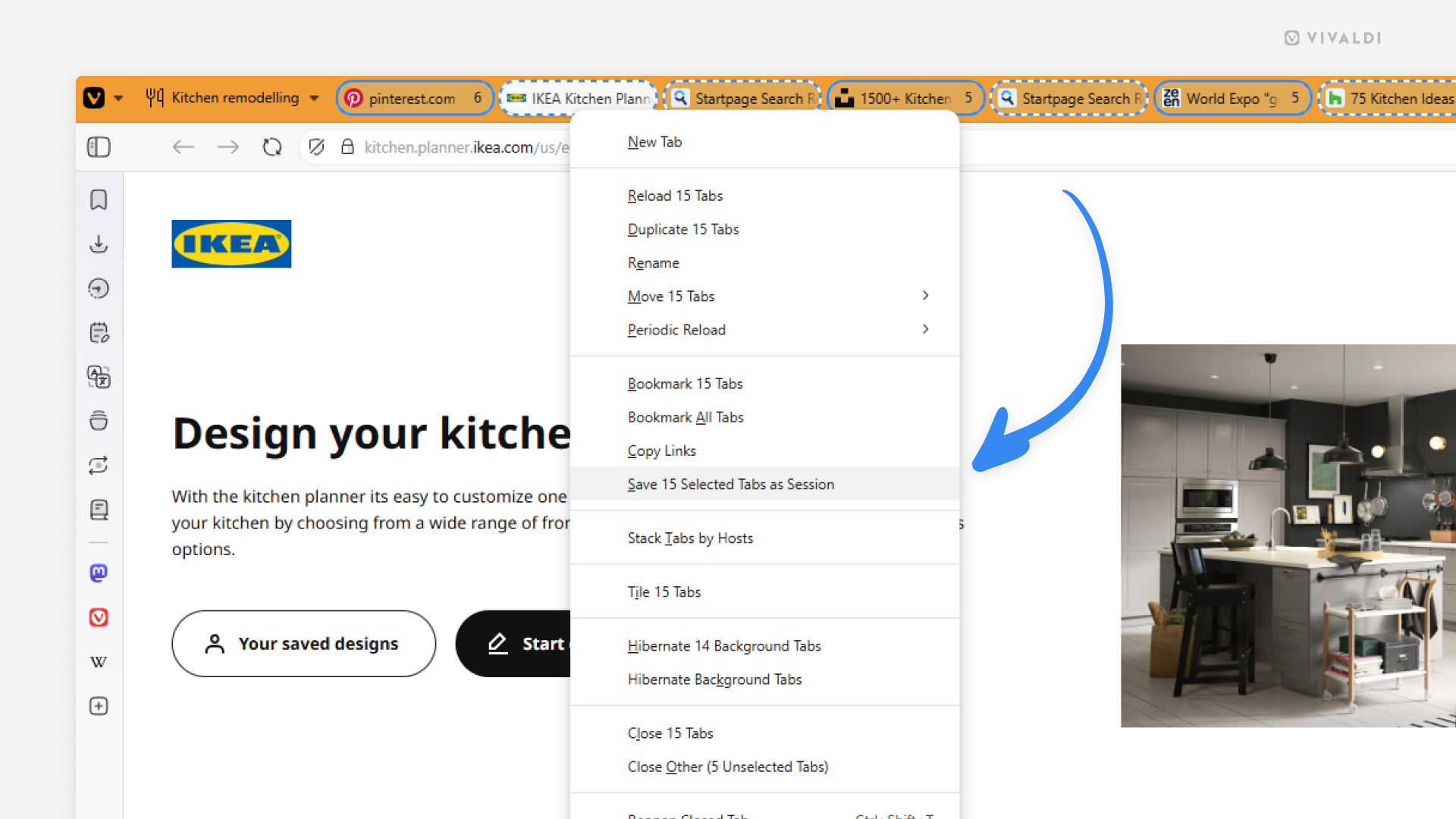
Tip #724
June 13, 2025
Turn a Sticky Note on the Dashboard into a proper note.
The Sticky Notes widget on the browser’s Dashboard allows you to quickly jot down thoughts. In case you want to expand that thought and save it for later, it’s best to save it as a new note, accessible from the Notes Panel and Notes Manager, and synced with your other devices.
To turn a sticky note into a note:
- Click on the 3-dot menu at the top right corner of the Sticky Note widget.
- Select “Save to a Note”.
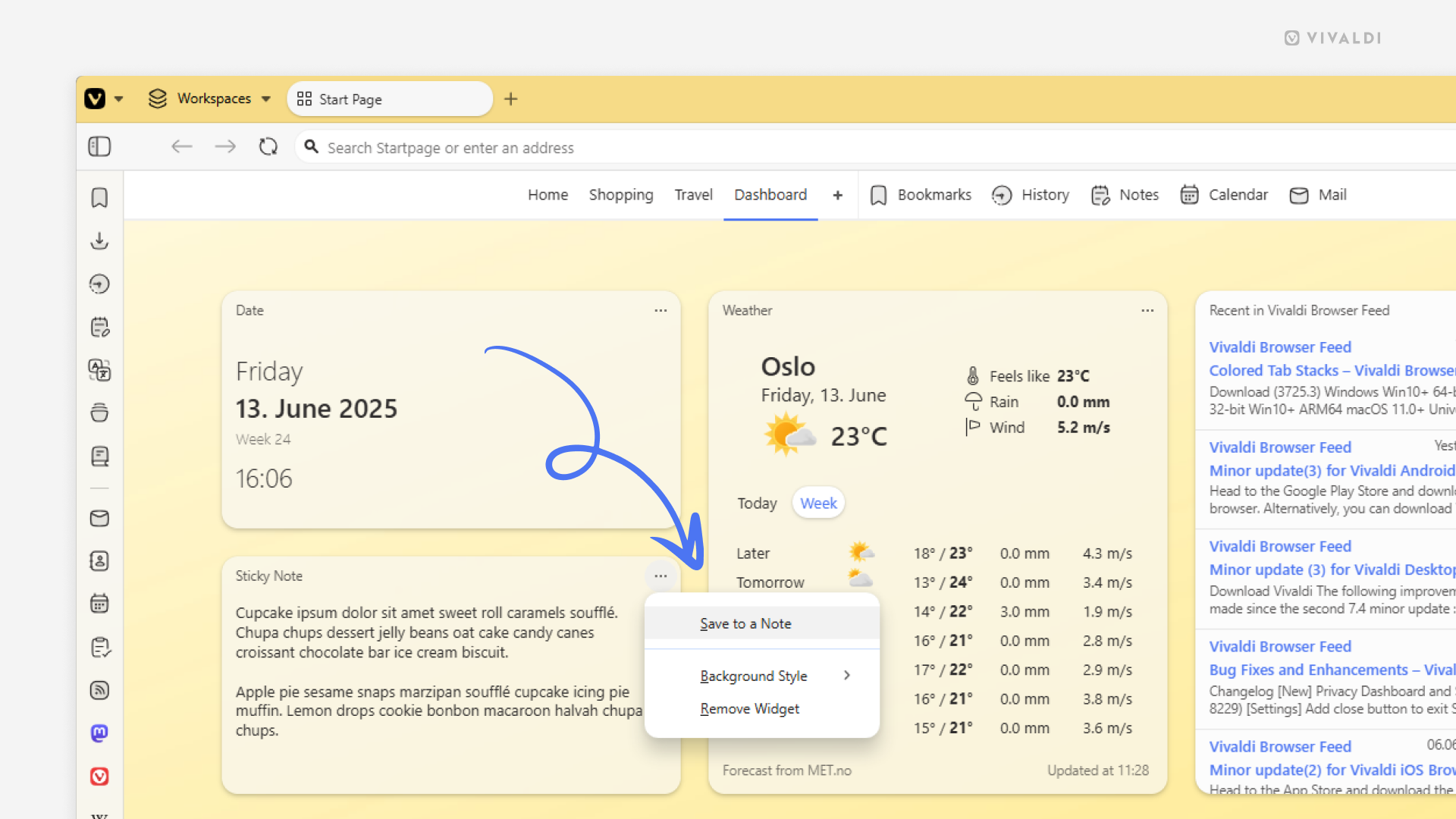
Tip #723
June 11, 2025
Give your bookmarks useful descriptions.
Bookmark descriptions are a great way to know what the web page is about without opening the bookmark. Also, including relevant keywords in the description can help you locate the bookmark faster when searching for it, for example, in the Bookmarks Panel or Address Field.
When you add a new bookmark, Vivaldi will fetch the description from the website’s metadata. You can edit the description, but if you prefer to add your own descriptions or have none, you can disable it.
To disable metadata fetching:
- Go to Settings > Bookmarks.
- Disable “Fetch Bookmark Data from Page Metadata”.
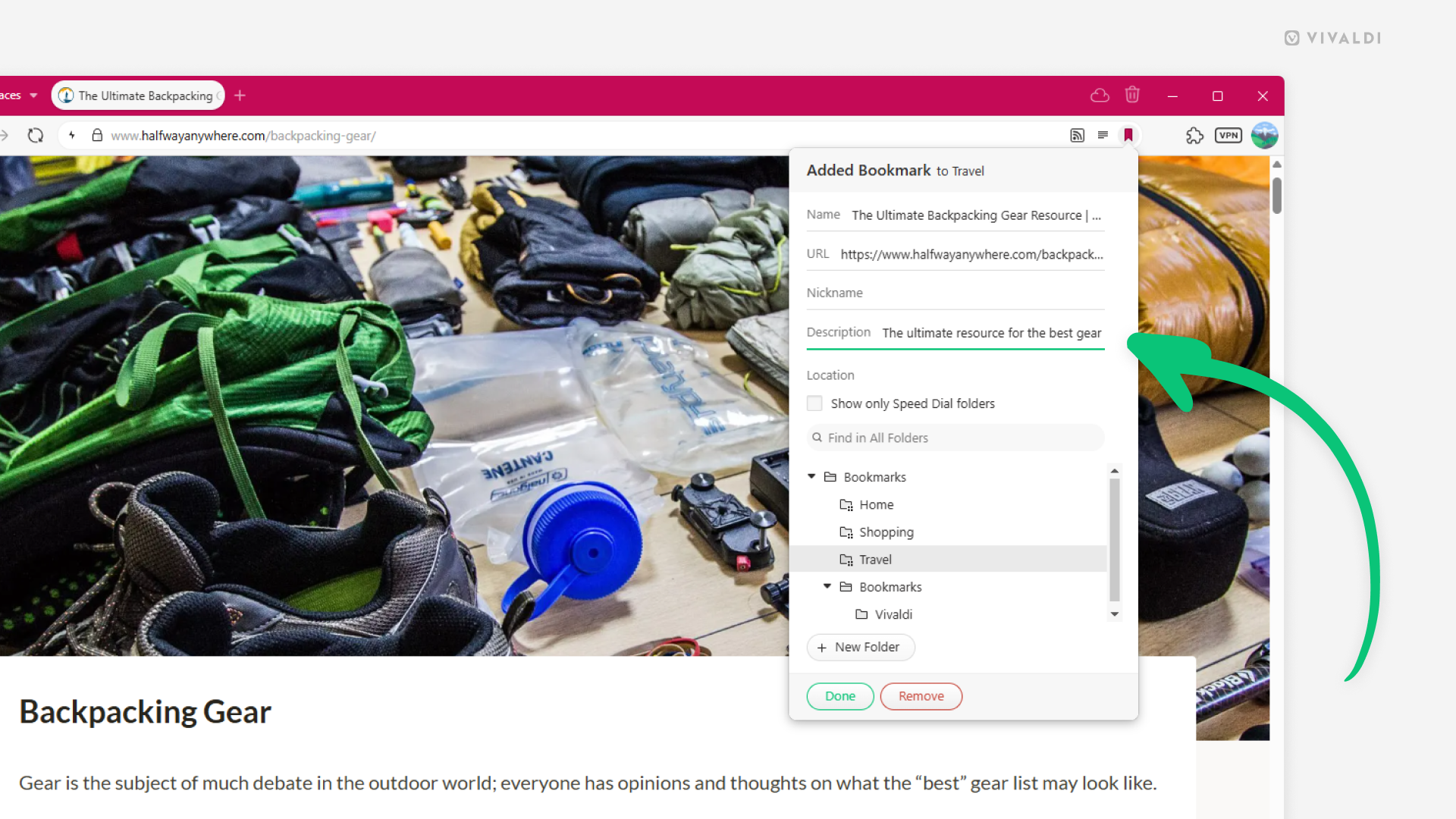
Tip #721
June 6, 2025
Return home after wandering off to other web pages in the Web Panel.
Web Panels are indispensable for looking things up quickly without diverging too much from your main activities in the browser. But you may still stray quite far from the page you originally added as a We Panel.
Luckily, it takes only one click to return to the main page of the Web Panel. Simply click on the Home button on the panel’s navigation bar.
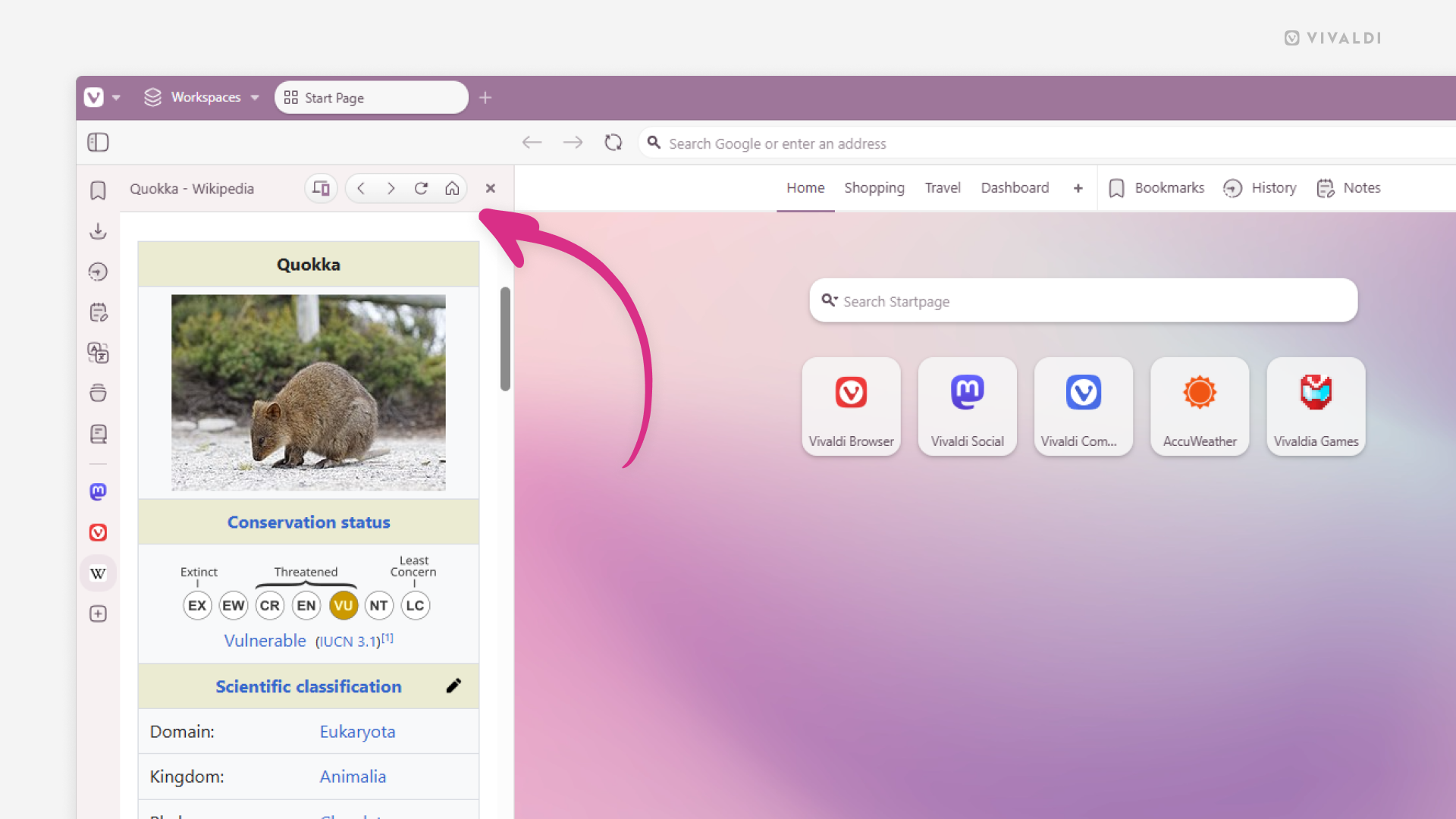
Tip #719
June 4, 2025
Disable notifications for hidden calendars.
Vivaldi Calendar is great for managing all your events and tasks in various local and online calendars. While it’s good to be able to access all your calendars in one place, not all of them are always relevant. Luckily, these calendars can be hidden from view (see Tip #525). By default, you’ll still receive notifications with event reminders from these calendars, but you can mute those as well.
To disable notifications for hidden calendars:
- Go to Settings > Calendar > Calendar Notifications.
- Enable “Disable for Hidden Calendars”.
Tip #718
June 3, 2025
Browse one-handed with Single Key Shortcuts.
With Vivaldi, there’s no need to perform complicated one-handed gymnastics tricks on the keyboard to reach multiple keys simultaneously, while the other hand holds a cup of coffee or a stress ball. Instead, you can enable Single Key Shortcuts and browse with ease.
To enable Single Key Shortcuts:
- Go to Settings > Keyboard > Keyboard Shortcuts.
- Enable “Single Key Shortcuts”.
You can browse preset Single Key Shortcuts and add or edit them to match your preferences in Settings > Keyboard.
To use Single Key Shortcuts, first make sure that none of the input fields (Address Field, text box on a web page, etc.) are focused. Then simply press the command’s shortcut key on your keyboard.
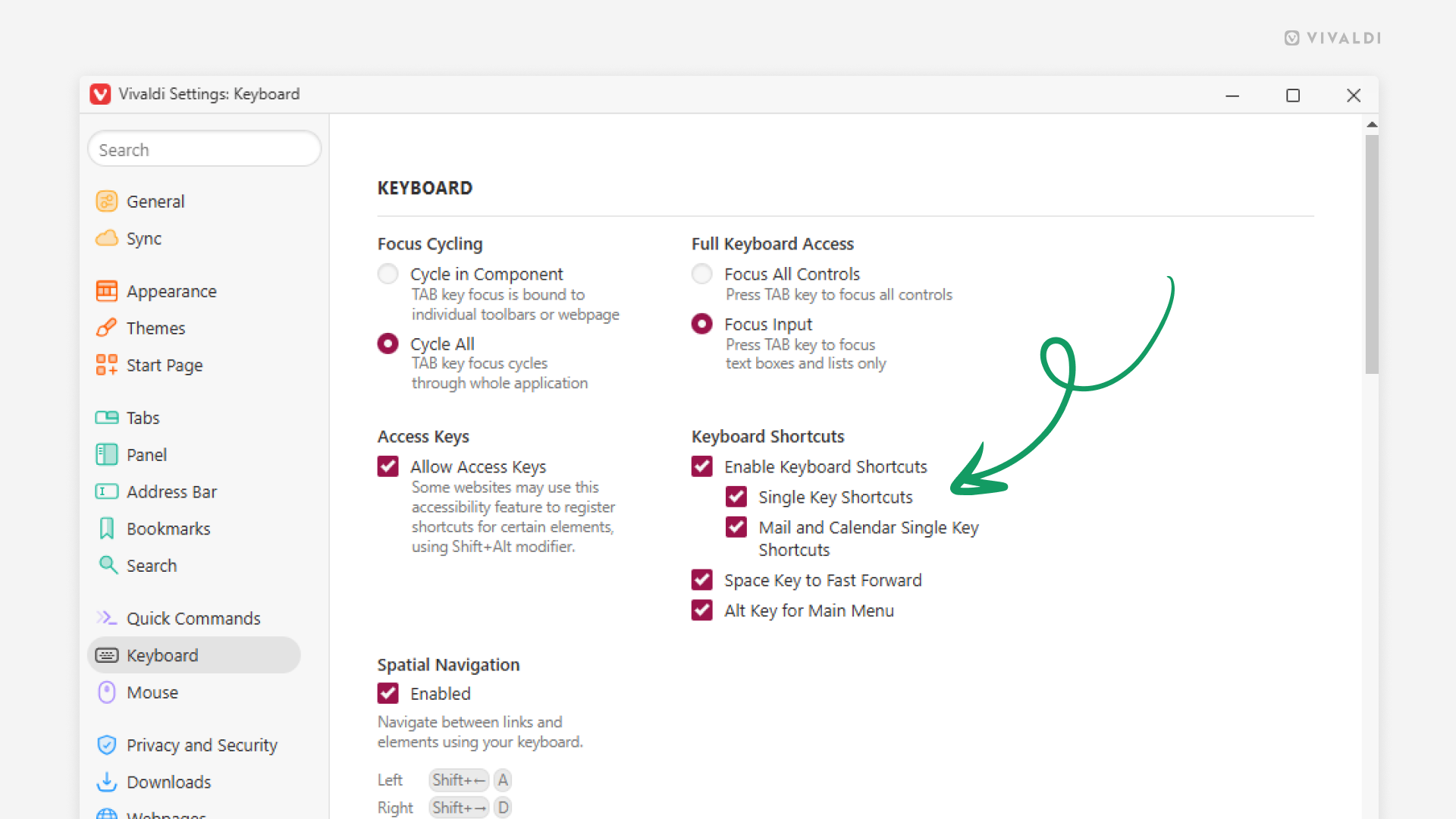
Tip #717
June 2, 2025
Minimize Quick Reply to give more space for long emails.
Quick Reply in Vivaldi Mail is a great way to swiftly send a reply email. The Quick Reply field does take up a bit of space, though, potentially hiding parts of longer emails. Luckily you can resize or hide it altogether.
To resize the Quick Reply field:
- Place the mouse cursor on the top edge of the section.
- When you see a double-ended arrow, click and drag the mouse up or down to resize it.
To hide/show the Quick Reply field:
- Place the mouse cursor on the top edge of the section.
- Do a double-click to hide the section or a single click to display it again.
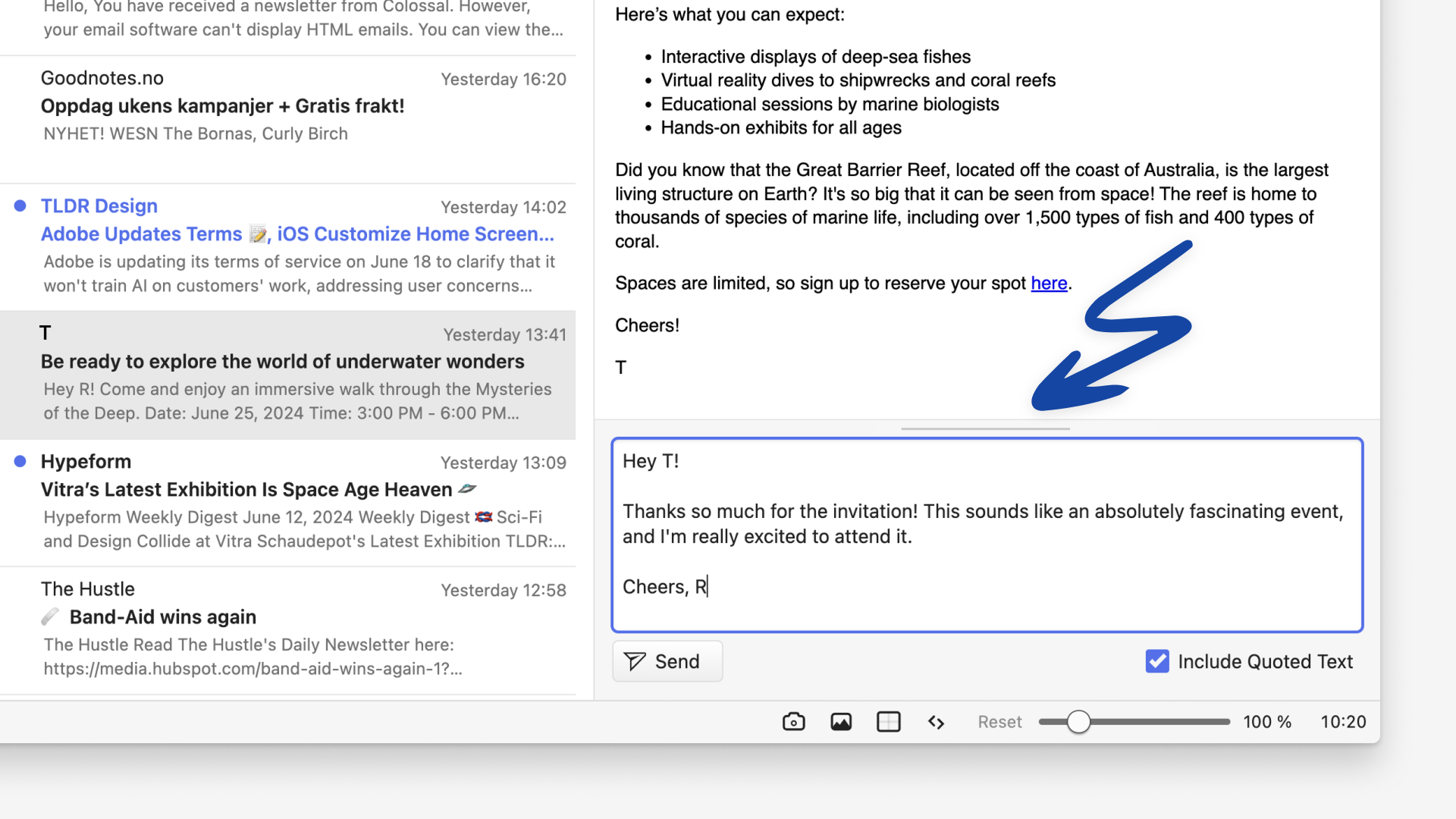
Tip #714
May 27, 2025
Hide your search history from the Address Field drop-down menu.
You can keep things more private and clean by excluding your past searches from the Address Field drop-down menu suggestions.
To disable search history:
- Go to Settings > Address Bar > Address Field Suggestions.
- Disable “Search History”.
